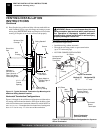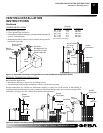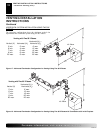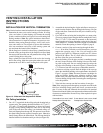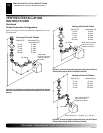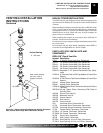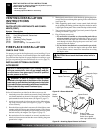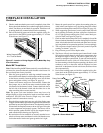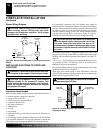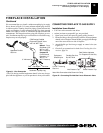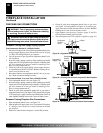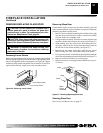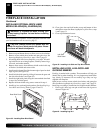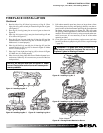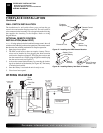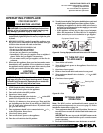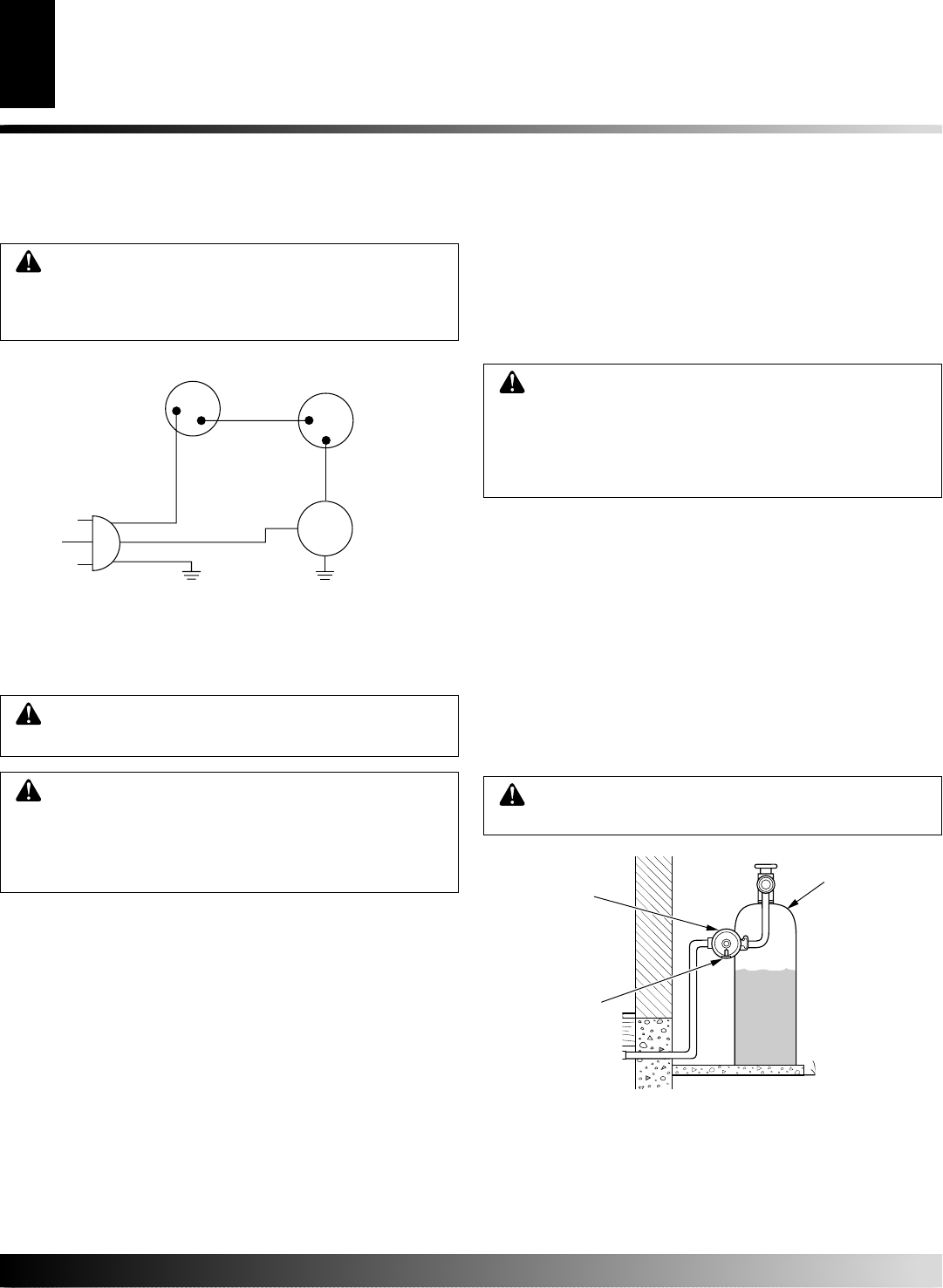
111907-01D
For more information, visit www.desatech.com
For more information, visit www.desatech.com
18
Figure 29 - Blower Wiring Diagram for Thermostat-Controlled
Models
Blower Wiring Diagram
CAUTION: Label all wires prior to disconnection
when servicing controls. Wiring errors can cause
improper and dangerous operation. Verify proper
operation after servicing.
Blue
Variable
Fan Switch
Fan Switch
(N.O.)
Green
White
On
110/115
V.A.C.
Blower
Motor
Black
Off
1
2
Black
INSTALLING GAS PIPING TO FIREPLACE
LOCATION
Installation Items Needed
Before installing fireplace, make sure you have the items listed below.
• external regulator (supplied by installer)
• piping (check local codes)
• sealant (resistant to propane/LP gas)
• equipment shutoff valve *
• test gauge connection *
• sediment trap
• tee joint
• pipe wrench
• approved flexible gas line with gas connector (if allowed by lo-
cal codes)
* A CSA design-certified equipment shutoff valve with 1/8" NPT tap
is an acceptable alternative to test gauge connection. Purchase the
CSA design-certified equipment shutoff valve from your retailer.
WARNING: A qualified service person must con-
nect fireplace to gas supply. Follow all local codes.
CAUTION: For propane/LP units, never connect
fireplace directly to the propane/LP supply. This
heater requires an external regulator (not supplied).
Install the external regulator between the fireplace
and propane/LP supply.
Figure 30 - External Regulator with Vent Pointing Down
(Propane/LP Only)
Propane/LP
Supply Tank
External
Regulator
Vent
Pointing
Down
FIREPLACE INSTALLATION
Continued
FIREPLACE INSTALLATION
Installing Optional Blower Accessory (Cont.)
Installing Gas Piping To Fireplace Location
Installation must include an equipment shutoff valve, union, and
plugged 1/8" NPT tap. Locate NPT tap within reach for test gauge
hook up. NPT tap must be upstream from fireplace (see Figure 31,
page 19).
IMPORTANT: Install main gas valve (equipment shutoff valve) in
an accessible location. The main gas valve is for turning on or
shutting off the gas to the appliance.
Check your building codes for any special requirements for locating
equipment shutoff valve to fireplaces.
Apply pipe joint sealant lightly to male NPT threads. This will
prevent excess sealant from going into pipe. Excess sealant in pipe
could result in clogged fireplace valves.
WARNING: Use pipe joint sealant that is resistant
to liquid petroleum (LP) gas.
CAUTION: Use only new, black iron or steel pipe.
Internally-tinned copper tubing may be used in cer-
tain areas. Check your local codes. Use pipe of 1/2"
inside diameter or greater to allow proper gas volume
to fireplace. If pipe is too small, undue loss of volume
will occur.
For propane/LP connection only, the installer must supply an
external regulator. The external regulator will reduce incoming gas
pressure. You must reduce incoming gas pressure to between 11 and
14 inches of water. If you do not reduce incoming gas pressure,
fireplace regulator damage could occur. Install external regulator
with the vent pointing down as shown in Figure 31, page 19.
Pointing the vent down protects it from freezing rain or sleet.



